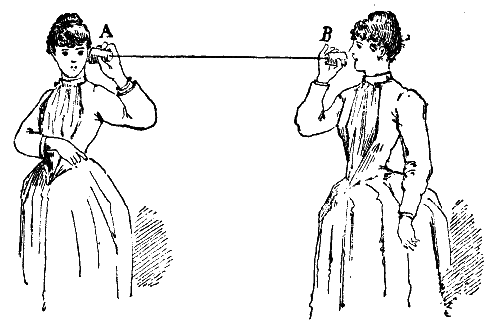
by Judith Herman
Are your knickers in a Twist when you think of phone banking?
Some folks find phone banking intimidating. Actually, it can be fun! Most important, you can know that you are making a critical difference in the coming election. Here’s the background you need to get comfortable.
Phone banks have changed a lot in recent years. Where volunteers once gathered around kitchen tables and office conference rooms to make their calls for candidates, today they gather on Zoom and Slack. The purpose is still largely the same, though: connect with voters about an upcoming election to see whom they plan to vote for, urge the undecided to support your candidate, and remind them of an upcoming election. The campaign usually provides a script, and volunteers report back after their calls. Today this is all done online.
Why we call
Building a relationship with voters through conversation, listening, and sharing information is a tried-and-true way to increase election turnout that is almost as effective as in-person canvassing (the gold standard of interactions).
Phone banks let campaigns reach people who don’t have steady access to emails or texts, such as voters living in rural areas with poor Internet access or voters with low incomes. Phone banks also provide a personal touch that makes voters more receptive to a campaign’s message.
Just getting a few more voters to the polls can make a huge difference. Consider Cheri Beasley, a former state supreme court chief justice from North Carolina. She lost reelection in 2020 by a mere 401 votes out of nearly 5.4 million ballots cast. She is now running for a critical seat in the U.S. Senate that could decide the balance of power in the country.
Timing is everything
The specific purpose of a phonebank often depends on where we are in the election cycle. Early on, campaigns often use phonebanks to clean up their lists of voters. At this point, there will be a lot of calls with wrong numbers, disconnected numbers, people who have moved, and folks who have died. While these phone banks can be frustrating, know that you are performing a valuable service by creating strong lists that promote successful election outcomes!
Campaigns may also use early phone banks to call independent/unaffiliated voters, new voters, or infrequent voters and find those most likely to vote for our candidates. Along the way, you may find some die-hard Republicans who need to be removed from the list. That’s important, too. Other reasons for making these calls include:
- Registering voters: Giving new voters and voters who’ve been dropped from voter rolls access to registration and providing registration deadlines
- Educating voters: Informing voters of new voting requirements — which may not be publicized — and explaining the process for requesting mail-in ballots, changing an address on the voter roll, and checking registration
- Facilitating early voting: Alerting voters to early voting dates and hours, in-person and dropbox locations, and specific requirements
- Getting out the vote (GOTV): Reminding voters to participate, informing them of polling locations and hours, giving them early voting locations and hours, sharing locations for dropboxes (where available), and walking them through a personal voting plan.
- Curing ballots: Helping voters resolve issues with their absentee ballots to make sure their votes are counted.
Some phone banks have you leave voicemail messages, others do not. When voicemail messages are not left, voters are usually called again — providing another chance for direct contact. Both approaches can be effective.
What you’ll need
To make your calls, you’ll need a computer (desktop, laptop, or tablet), a cell phone, chargers for your computer and phone, a notepad and pen, and a smile that shines through the phone. The group hosting the phone bank will provide a dialing application that displays the name, phone number, and other relevant information for each voter on your computer screen. These applications use either automated or manual dialing.
Automated dialing: CallHub, Hubdialer, and ThruTalk
An auto dialer connects a call to your phone when someone answers. When a number goes to voicemail, is busy, or is disconnected, the dialer instantly moves to the next one — saving you precious time.
Manual dialing: VPB (Virtual Phone Bank) / OpenVPB
With this type of application, you dial a voter’s number on your cell phone — using numbers provided automatically on your computer or from a list you link to online. You decide the pace of the calls, making this a good method for beginners. Many programs do not display your number. For those that do, voters rarely call back — and you can easily obtain an anonymous Google Voice number (sometimes with the area code for the state you’ll be calling), if you prefer.
How it works
Concord Indivisible offers phone bank opportunities that we have found to be easy to use and effective. Most are promoted through the Mobilize online portal. Others are promoted by individual organizations. You can find the phone banks that CI recommends — along with registration information — in our newsletter or on the Action Springboard pages of our web site. You can register online to sign up. You will then receive a confirmation by email or text that typically includes the link to a Zoom launch call as well as any preparation steps. Sometimes the Zoom link is sent the day of the phone bank.
When you join the Zoom call to start a phone bank, the leader usually provides an overview of the goals for the phone bank and the target audience. Because some volunteers may be new to phone banking, while others are experienced but new to this one, the phone bank leader may offer separate “breakout” Zoom rooms to train each group according to its needs. Recurring phone banks may contain updates of purpose, process, script, and/or links. So good it’s helpful to listen to the update part of your training, even if you’ve worked with the host group before.
Most leaders review the fundamentals of making calls and go through the call script. The script is typically part of the application you use, but you may be able to get a printable version if you ask. As experienced phonebankers head off to make their calls, beginners typically stay for training on the specific phone bank application. Both groups will find the links they need to start their calls in the Zoom chat box.
Helpful tips
- Before you start calling, read through the script several times until you’re comfortable.
- Some scripts have drop-down boxes. Without actually calling, you can try each of them to see the various options so you’re not surprised during a call.
- Jot down the voter’s name and phone number if you think it may be needed for follow-up by the leader.
- Feel free to ask questions! Others may have the same question, and the more you learn, the more comfortable you’ll feel.
Phone bank leaders usually stay on the Zoom call to answer questions or have callers ask their questions in the Zoom chat. The leaders and chat box are typically available throughout the session to answer your questions promptly. In some cases, you may be asked to return to the Zoom call a few minutes before the phone bank ends to let the leader know how it went. This information is quite helpful for planning future phone banks. We wish you the best of luck with your calls, and thank you for your help. If you have questions, please contact Judith Herman.


Leave a Reply